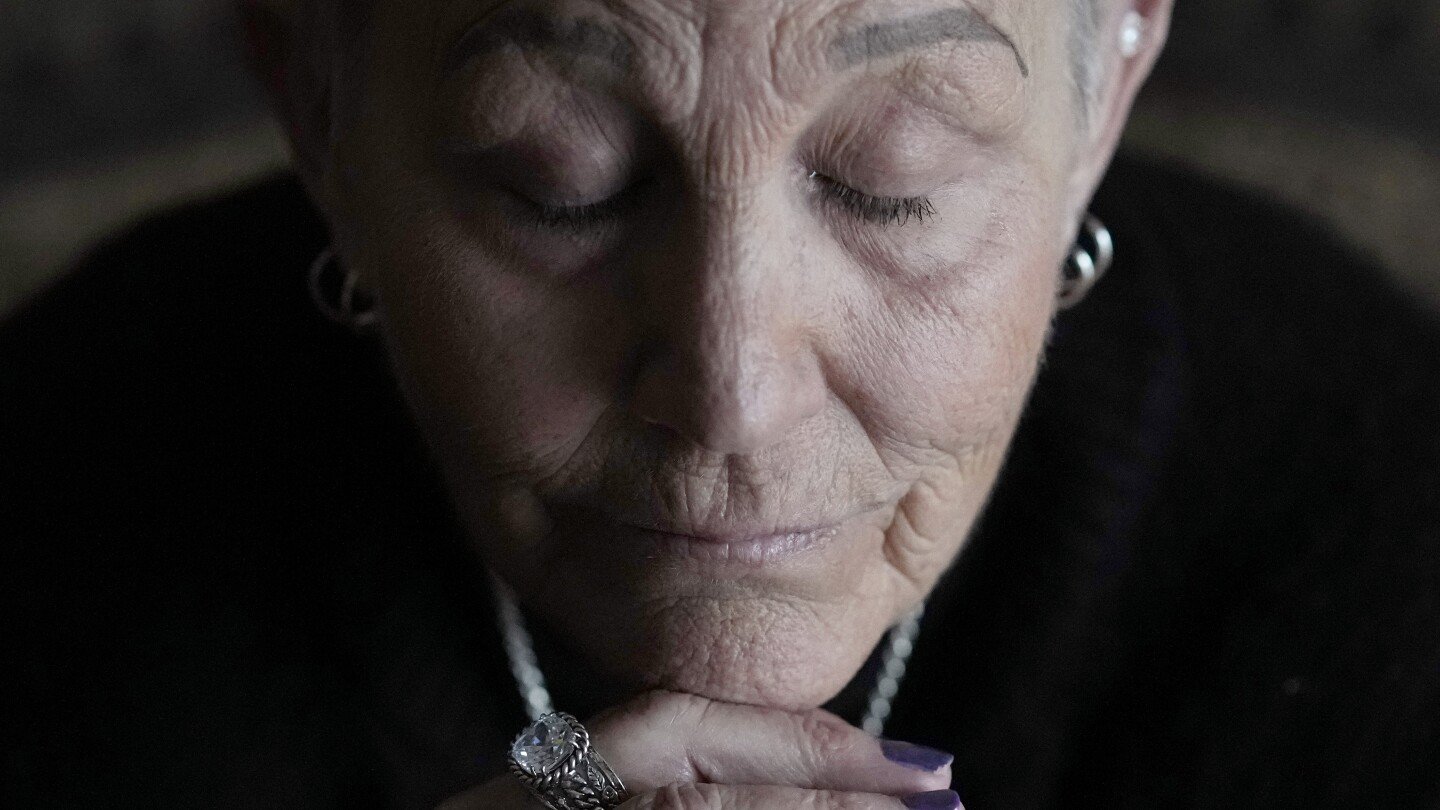On a brisk day at a restaurant outside Chicago, Deb Robertson sat with her teenage grandson to talk about her death.
She’ll probably miss his high school graduation. She declined the extended warranty on her car. Sometimes she wonders who will be at her funeral.
Those things don’t frighten her much. The 65-year-old didn’t cry when she learned two months ago that the cancerous tumors in her liver were spreading, portending a tormented death.
But later, she received a call. A bill moving through the Illinois Legislature to allow certain terminally ill patients to end their own lives with a doctor’s help had made progress.
Then she cried.
“Medical-aid in dying is not me choosing to die,” she says she told her 17-year-old grandson. “I am going to die. But it is my way of having a little bit more control over what it looks like in the end.”
That same conversation is happening beside hospital beds and around dinner tables across the country, as Americans who are nearing life’s end negotiate the terms with themselves, their families and, now, state lawmakers.



For the last 10 years I have been saying this should be legal. As long as you are determined to be of sound mind and not influenced by anyone, then let them make the decision. You will have many arguments against it (religion, could be cured unexpectedly) but it’s the patient’s decision.
The only argument would be if doctors and nurses should assist. This is a huge argument against state sponsored executions. Maybe a device that can safely and painlessly assist the patient could be a resolution.
So what you are saying is that we need some of those suicide booths that they had in Futarama.
You bring up a good point that it would be hard to find many doctors or medical professionals willing to focus their careers on euthanasia, as it goes against their oaths.
I would love a Futurama world.
The “oath” isn’t legally binding. They should help those that are suffering no matter the expected end result.
The “Oath” isn’t why they can’t go around assisting in suicides. It’s because they will literally go to jail in the same way as a murderer
Are you not old enough to remember Jack Kevorkian?
I’m in agreement. My concern is that this gives people in control the ability to feign choice. “They wanted this route” when in reality, it was murder.
Just need some decent protections in place for things like these.
I agree, it needs to be a very strict and regulated process. No power of attorney or anything like that. The person needs to undergo a psychiatric evaluation by two or three psychiatrist that specializes in suicidal thoughts or self harm. It needs to be a somewhat long process. But, I don’t want it to be a multi year process either.
In Canada, 2 doctors have to agree that the patient is of sound mind, wants Medical Assistance in Dying, and their condition meets the minimum legal threshold. I think that system has been working fairly well.
Sounds good…but in america…we’re prone to finding ways to fuck up.